Mosquitoes are one of the most dangerous and deadliest creatures on this planet. They have been killing people for centuries, but facts about them are still unknown to many. In today’s post, we will talk about various facts about mosquitoes that will blow your mind!
Mosquitoes are not a nuisance. They can cause many deadly diseases. And they also spread life-threatening epidemics worldwide every year! Besides, scientists have found that mosquitoes send more than 100 different viruses, bacteria, protozoa, or parasites to humans. These facts about mosquitoes will blow your mind!
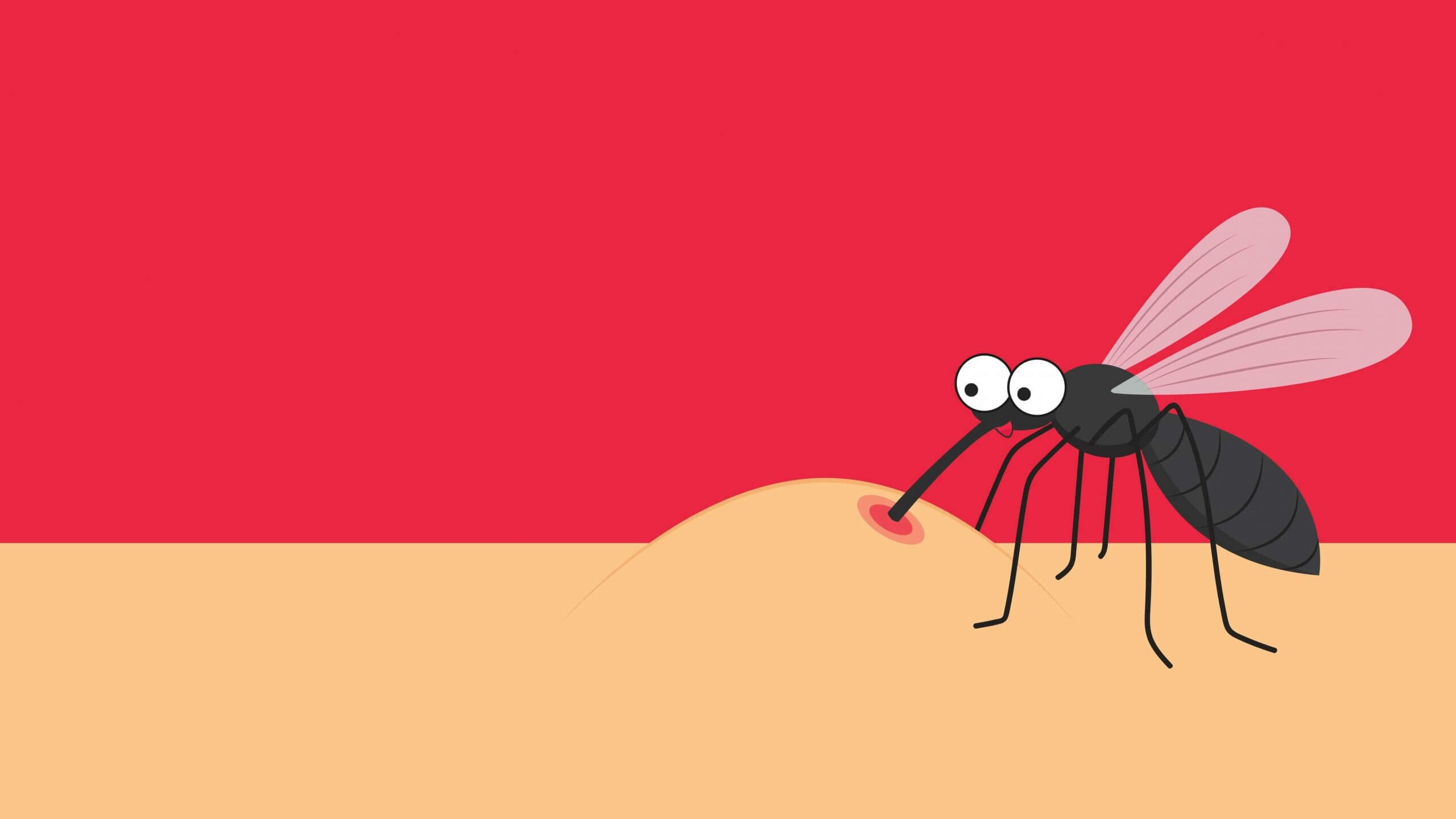
Did you know that only female mosquitoes bite?
Both male and female mosquitoes act as carriers for the disease.
Female mosquitoes need blood with a particular group of proteins found in mammalian blood to reproduce. Male mosquitoes don’t this because their role is to help distribute sperm around.
To do this, males approach anything that looks female and partakes in a simple form of intercourse called “mate-pairing” or “bluer sex.” But even if they don’t find anything, they keep looking for something to feed on. In other words, females get it done first while the males look around and eat what’s leftover (males feed on flower nectar).
Check out Facts About India that blow your mind
What is the lifespan of a mosquito, and why do mosquitoes exist?
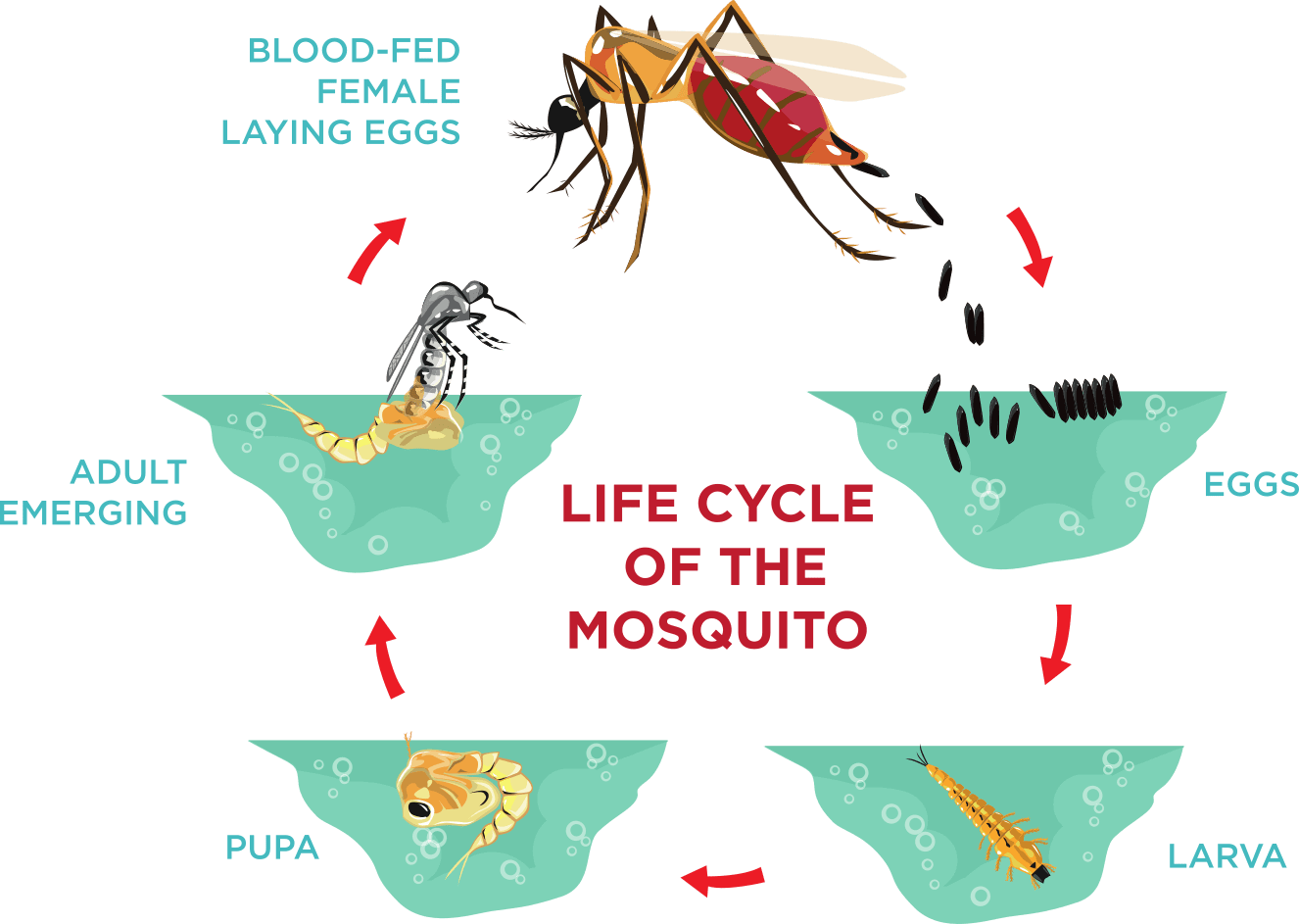
Mosquitoes live for up to one week. But mosquitoes exist because they serve as a keystone species with immense impact on the environment.
Keystone Species– A particular animal or plant that has a dramatic effect on its ecological community.
Mosquito’s have been observed for their survival where they lay eggs in hidden, still water. They’re often seen in cold climates and frozen temperatures because they can prey on body heat to stay active when they cannot find any other pool of water.
Mosquitos are often found near bait stations and sewage ponds. And which contain sources of protein like tadpoles or dead animals that act as other prey for them.
How long have mosquitoes been around?
The standard view of mosquitoes is that they are a recent pest, arriving in the New World with Christopher Columbus.
Yet, the fossil record reveals that mosquitoes were doing their thing long before white guys set foot on the continent. The fossils date back to at least 46 million years ago. And it’s so plausible – if not probable – that they were an active part of Earth’s ecology when dinosaurs roamed North America.
So we don’t know how long they’ve been around, and there isn’t a direct answer to that question.
How do mosquitoes find their targets?
Mosquitoes have very keen senses. One of the most impressive features is their detection of minuscule amounts of substances such as carbon dioxide associated with human breath and sweat.
Studies show that mosquitoes locate humans by sensing their bodies’ unique blend of odor, heat, and moisture. When any one of those factors is absent, anti-hunting mosquitoes will not come near a person to bite them. Also, mosquitoes can detect humans’ heartbeat and breathing rate from 40 yards (van der List 2010).
The frustration mounts when it’s discovered that pesky insects can sense even more than we do. Including infrared light- something invisible to us but visible to mosquitoes!
Check 60 Facts About United States That Most Americans Don’t Know!
How many mosquito species are there?
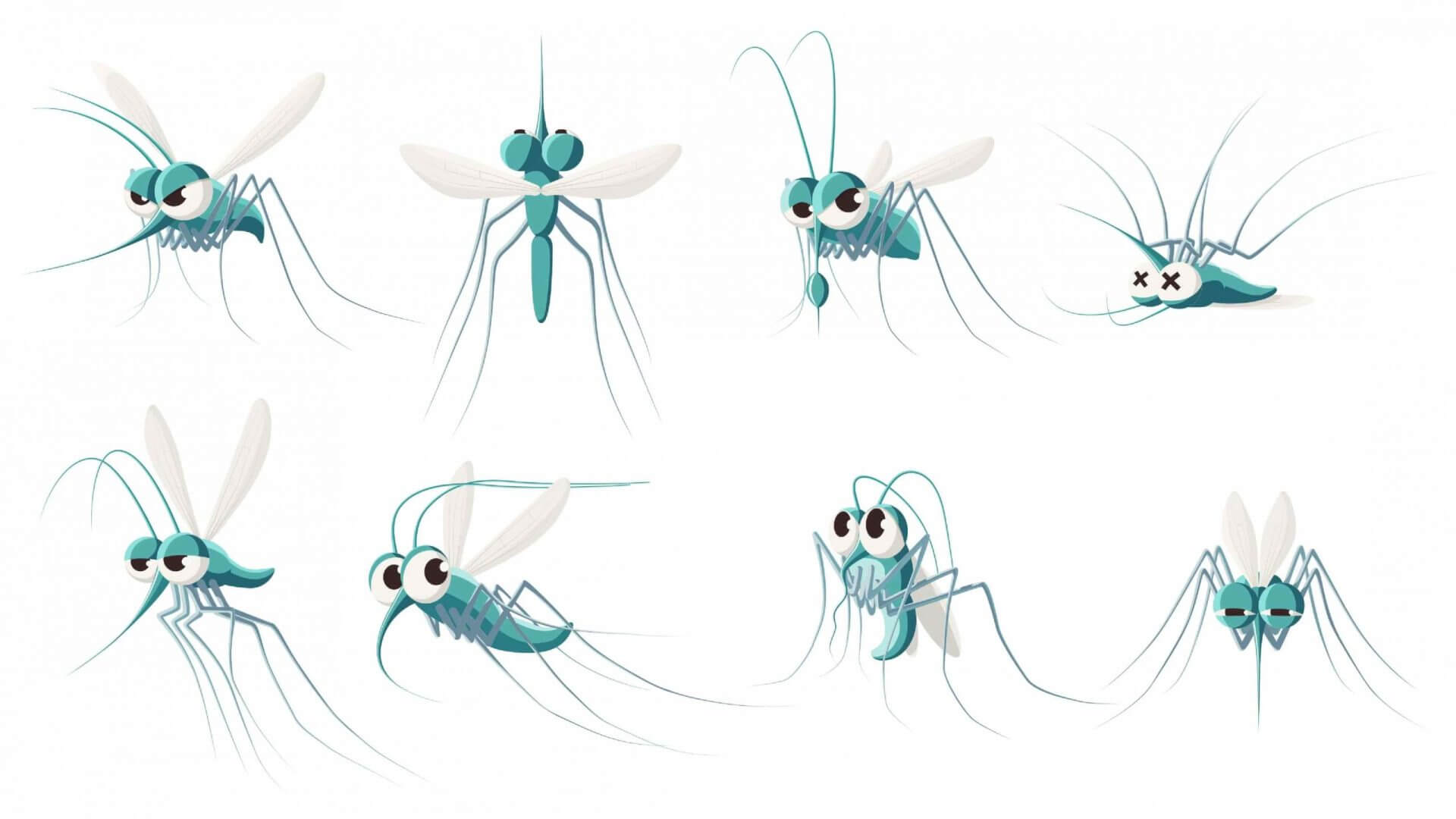
Mosquitos originate in the tropical regions of the world. And live on every continent (except Antarctica). There are a great variety of mosquito species. And over 3,500 different mosquito species have been identified. Of these 3,500 or more types of mosquitoes, only about 2-3% are carriers of malaria.
The word “mosquito” comes from the West African Swahili word for “little .” Female bites tend to be most painful because they often must get through our tough skin layer before piercing our cells. A female mosquito needs blood (oxygen) to produce eggs so it can reproduce. And drawing out cholesterol-rich blood and an egg of fluids that include proteins for development and iron supplements.
How many teeth does a mosquito have?
Mosquitoes own two mouthparts, one for piercing and one for sucking. Although it’s often said that mosquitoes only have a stinger – I’ll get to that in a second—they also have a snout that is used for drawing blood (and sugar) from their hosts.
And while we’re on the topic of mosquitos’ mouths, I’m going to go ahead. As you may have guessed, a mosquito’s mandibles (the parts of their mouth used for biting) are structured with setae (a more or less hair-like structure). And break out the microscope and describe what those are like.
Check out Does My Computer Have Bluetooth?
Can mosquitoes kill you?
Mosquitoes can have various health effects, including malaria transmission, filariasis, dengue fever, and West Nile Virus. The more insect bites you are exposed to in your lifetime, the greater your risk is for contracting any one of these deadly diseases.
So yes, mosquitoes can kill you. Mosquitoes are the most deadly natural animal in North America. They account for more deaths than any other animal, including tigers and bears. Mosquitoes carrying West Nile Virus are a recent introduction to this country. But they have spread since then.
More than 2/3 of all people will be bitten by a mosquito at some point in their lives. So must take precautions against mosquitoes and West Nile Virus. As well as other viruses or diseases transmitted through biting insects.
Here are some recommendations:
– Avoid being outdoors during evenings when mosquitoes are active (mosquitoes tend to bite during these times).
– Best to protect yourself by wearing long sleeve shirts and pants when outdoors during mosquito season that covers both arms and legs.
So those bugs don’t follow you into living spaces.-When indoors, be sure to use an insecticide. Some effective ones include coils or Himalayan salt lamps.
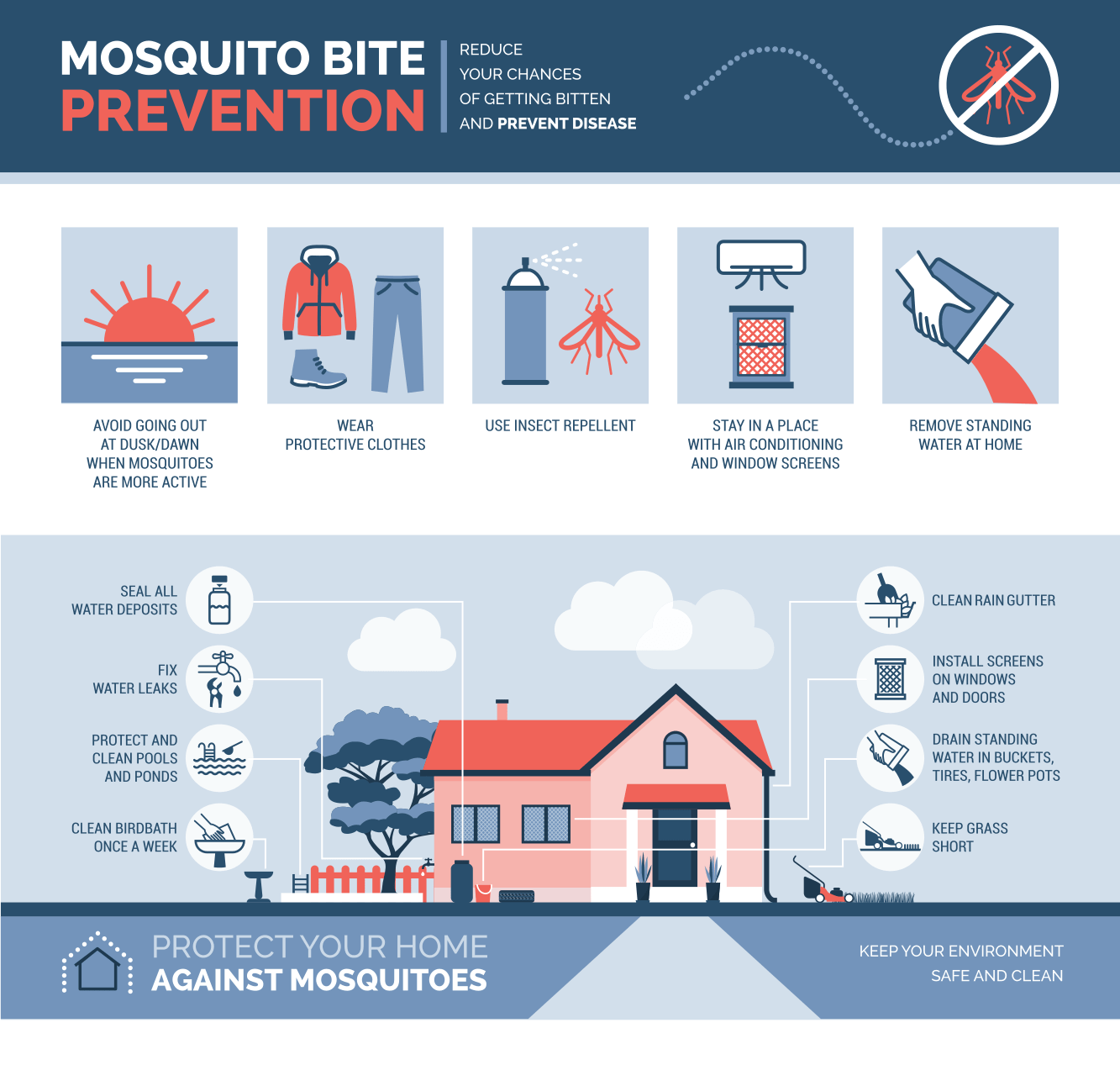
Do mosquitoes die after they bite you?
Mosquitoes don’t die after they bite you. Mosquitoes need to suck blood from living humans or other animals to survive and reproduce. Also known as a “sugar-biter,”. The mosquito’s mouthparts can pierce human skin. Because their mouth is full of small, sharp teeth. This draws blood towards its needle-like proboscis and needs only seconds to consume a meal.
Mosquitos depend on sucking blood from mammals. It’s what allows them to grow and be fertile.
Mosquitoes only live for a max of two weeks. And in that time, will eat anything they can find. Including the blood of the people who inhabit their immediate environment. Mosquito bites are more than a nuisance. Recently, they have been attributed to more severe diseases like the Zika virus and Dengue fever which can be lethal.
Why are mosquito populations increasing and becoming even more of a problem worldwide?
Mosquito populations are increasing. Because they (like many other insects) develop resistance to pesticides and repellents. The adults also lay more eggs. Because of abundant larval food sources, like stormwater catch basins or discarded tires.
Mosquitoes are an ever-present nuisance to humans and animals alike. Mosquito populations have been increasing by 1.5 billion for the last 20 years. The problem is becoming more critical. with mosquitoes being responsible for hundreds of thousands of deaths per year in lower-income countries alone.
Mosquitoes play a crucial role in maintaining a balanced ecosystem by controlling or eradicating other species that would otherwise grow out of control. So if mosquito populations continue to increase unchecked, entire ecosystems will destabilize. check out the Top 10 Unbelievable Bridges
Mosquitoes don’t only bite humans.
Mosquitoes are also a lot of other animal victims.
Mosquitoes don’t bite humans because some species even choose to avoid biting people altogether. They will attack about anything- mammals, reptiles (like lizards), amphibians (frogs!), and even fish. All these different hosts have blood that mosquitoes need to produce their eggs! To ensure they can reproduce, female mosquitoes will stop at nothing to hunt down a host.
For that reason, Mosquitoes don’t only bite humans.
Best Way to Get Rid of Mosquitoes (Infographic)
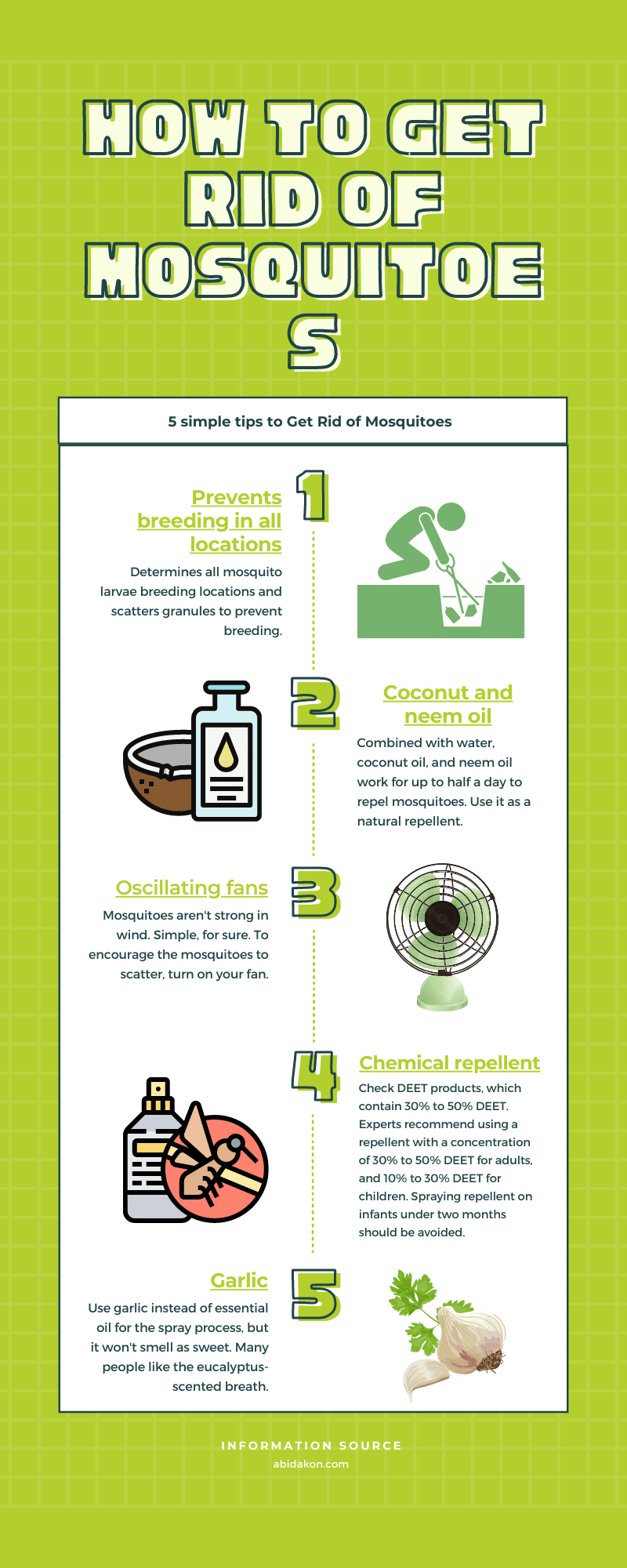
The Wings of a Mosquito beat between 300 and 600 times per second.
This question is quite tricky. Mosquitoes are very hard to study because they have a low genetic variation. And so no one has been able to figure out how their wings work. Scientists have come up with all sorts of methods for studying the wing’s physical properties. But so far, nothing has stuck. One standard approach is cutting off the mosquito wings. And shaking them back and forth with an ink pad on a chart (which allows scientists to track acceleration during flight).
They discovered that the wings of a mosquito beat 300–600 times per second. This might seem like an ultrafast speed. But when compared to the male honeybee’s wings that vibrate as fast as 12,000 times a second. This number appears slow.
A honey bee has to eat about four pounds of nectar every day to keep up. That metabolism and produce enough energy for flying. Such feats are challenging to do with slow flying wing frequencies of 300-600 times per second!
Mosquitoes are the deadliest animals on the planet
Mosquitoes are most harmful because they cause malaria, also making people miserable.
In Uganda alone, between 2000 and 2005, malaria killed at least 20 times more people than elephant poachers have. Moreover, a person with severe anemia will die from one bout of malaria. In contrast, a person who sustains a severe injury or burns can survive for weeks before succumbing to death.
southwest of the populated area of Los Angeles, there are 75 severe West Nile Virus cases reported this year despite extensive efforts to control mosquito populations in that region. Consider these staggering numbers: 3+ million Africans contract malaria leading to 1+ million deaths and 1/2 billion humans carry dengue.
What are the differences between mosquito larvae and a maggot?
The plainest difference between mosquito larvae and maggots is their appearance. Mosquito larvae look more worm-like than fly-like, although any of these words can be used to describe both. Because they all fall under the category of “insects.” Maggots are larval flies, so they have a fly-like body with three segments.
Mosquitoes lay eggs in water. While maggots hatch from eggs laid on moist surfaces such as carrion or food. And compost piles containing organic matter.
Mosquitoes must at least 100 ml (about 4 oz) of water and a flat surface of bare soil for proper growth.
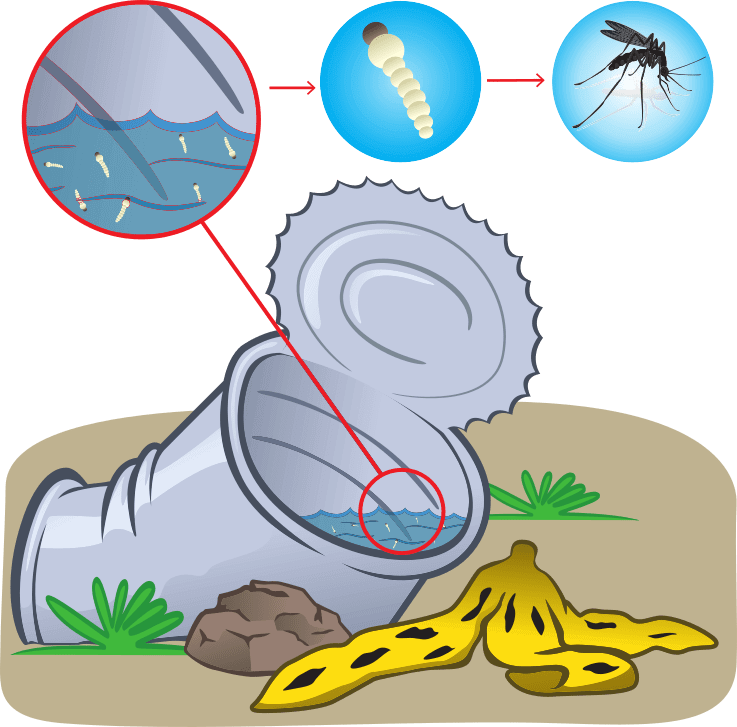
Why Mosquitoes love CO2?
Mosquitoes breathe through a siphon to filter out nitrogen, so they follow the CO2 levels in an area. They locate humans by catching the scent of all these little animals (such as mice). That we eat and release carbon dioxide when they die.
Mosquitoes detect CO2 in the breath of mammals and other animals. Mosquitoes are attracted to humans by seeing lactic acid, heat, sweat, and CO2 from our breath as well as skin oils. The mosquitoes locate the host using its sense of smell. And their own particular set of five odorant binding proteins on their antennae can bind to sugars found in different compounds like sweaty skin or blood that some people may have eaten (like garlic).
Mosquitoes don’t travel far from their breeding spot
It is true that most mosquito species dislike flying too far from their breeding grounds unless they need food. The majority of mosquito species operate within a radius of 50–100 meters (160–320 feet) of their breeding ground.
What’s the importance of mosquitos on our planet?
Mosquitos are an essential part of the Earth’s ecosystem. Mosquitos feed on human blood, but they also serve as food for other animals such as bats and birds. They help keep the population of many species of agricultural pest insects lower. And can be effective in the prevention or even spread of certain diseases.
Mosquitoes do not have any significant metabolic or host-specific effects against bacteria, viruses, or fungi.
Mosquitoes offer a blood meal to other animals. Which are critical in prey cycles and maintain a healthy balance between natural plant/insect populations. Mosquitoes may play a role in pollination by feeding on nectar from flowers during their brief adult stage (of 2 wks). check out 65+ Interesting Facts That Will Blow Your Mind!
What would happen if suddenly all mosquitoes die?
If all mosquitoes die, it would have severe impacts on many of the ecosystems around the world. have severe implications for the ecosystems around the world. There are several varieties of hard-bodied organisms. That could not exist without their mosquito population. For example, some species of butterfly caterpillars eat only one thing: Mosquitoes. Imagine an entire genus going extinct at once. And how devastating that would be to biodiversity in our modern world.
Mosquito-eating fish such as caddisflies pupate both in water. And in the soil will meet their demise due to a lack of food. While some might enjoy the disappearance of mosquitoes, including human-suckers such as deer ticks they too would succumb without this pest’s regular consumption.
How many mosquitoes does it take to consume a human of their blood?
The average human being, as we all know, has 5.5 liters of blood. In this scenario, we’ll consider the Asian tiger mosquito. Because it’s one of the most frequent species.
A female mosquito of this species can consume up to 5 microlitres of your blood in a single sitting. And our bodies contain 5.5 liters. Now, let us perform the math, as we are mathematical geniuses. Convert microlitres to liters and then multiply by two. According to our calculations (you must believe me on this one; I am a math whiz, no bragging), you would need approximately 1.1 million of these mosquitoes to drain your blood completely. Yet, you will not live to see this through to the end. By the time 40% of your blood has been lost without replacement, you will almost be dead due to organ failure.
Thus, this is not an effective method of death.
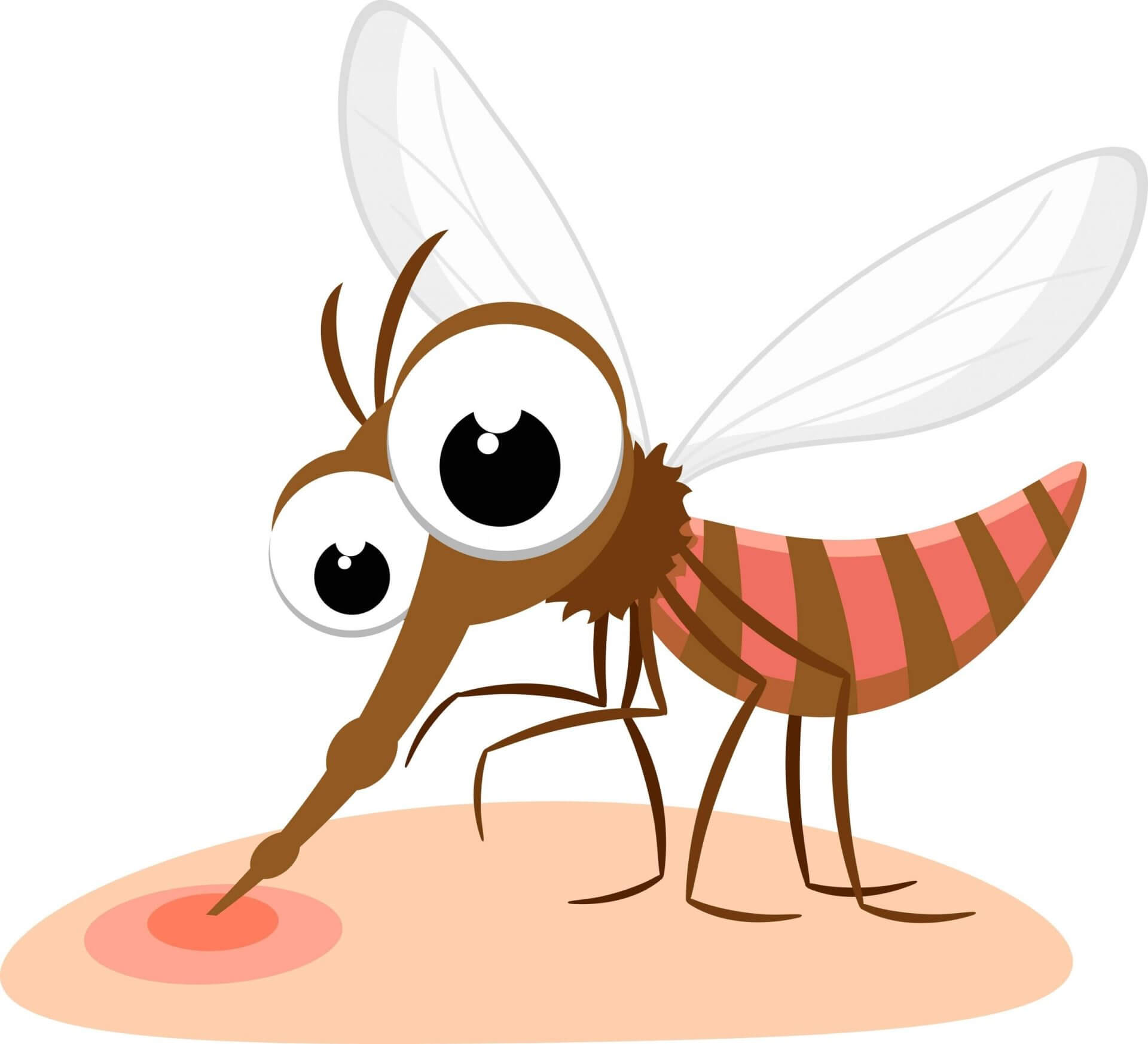
How high can a mosquito fly? (Facts About Mosquitoes)
They have been discovered in jet streams, air currents that hover between 33,000 and 52,000 feet above the ground. They are, but, aided in their ascension by the winds. Winds carry them between islands and even continents, according to studies.
As a result, they can as high as the most adept flying animals when the winds are favorable. But, they almost have no reason or motivation to do so. They fly no higher than 25 feet, as that is the altitude at which the food is found. They climb a little higher in cities to reach buildings; once again, that is where the food is.
Can mosquitoes fly when it rains?
Assume a mosquito is the same size as a 30 caliber bullet. And, to simplify the math, let us assume the bullet is a 3/10 inch cube.
Raindrops fall at a constant ten-foot-per-second rate. Because more giant raindrops flatten more. And encounter more wind resistance, the speed of all raindrops is stable.
According to my observations, a weighty rainfall produces ten drops per second over an area of one square foot. In other words, a ten-foot-tall column has one depth per cubic foot.
Our cubic 30 caliber mosquito has a one in 10/3 x 123 = 5,760 chance of being struck by a drop. According to what we’ve been told, mosquitoes are so sensitive to pressure that they can avoid that one drop even if it’s close.
Thus, a mosquito can fly through a rainstorm without getting wet. check out some Google tricks.
How many eyes does a mosquito have? (Facts About Mosquitoes)
Mosquitoes have two “compound” eyes that are made up of many individual ommatidia. Each ommatidium acts as a sensory organ or “eye,” projecting a partial image onto the brain’s optical lobe.
The brain then integrates each ommatidial image into the vision of the mosquito. As a result, mosquitoes have various eyes. Additionally, mosquitoes have ocellia. Which are simple eyes used to detect changes in light levels. And perform related functions.
How to get rid of dengue Infographic (Facts About Mosquitoes)
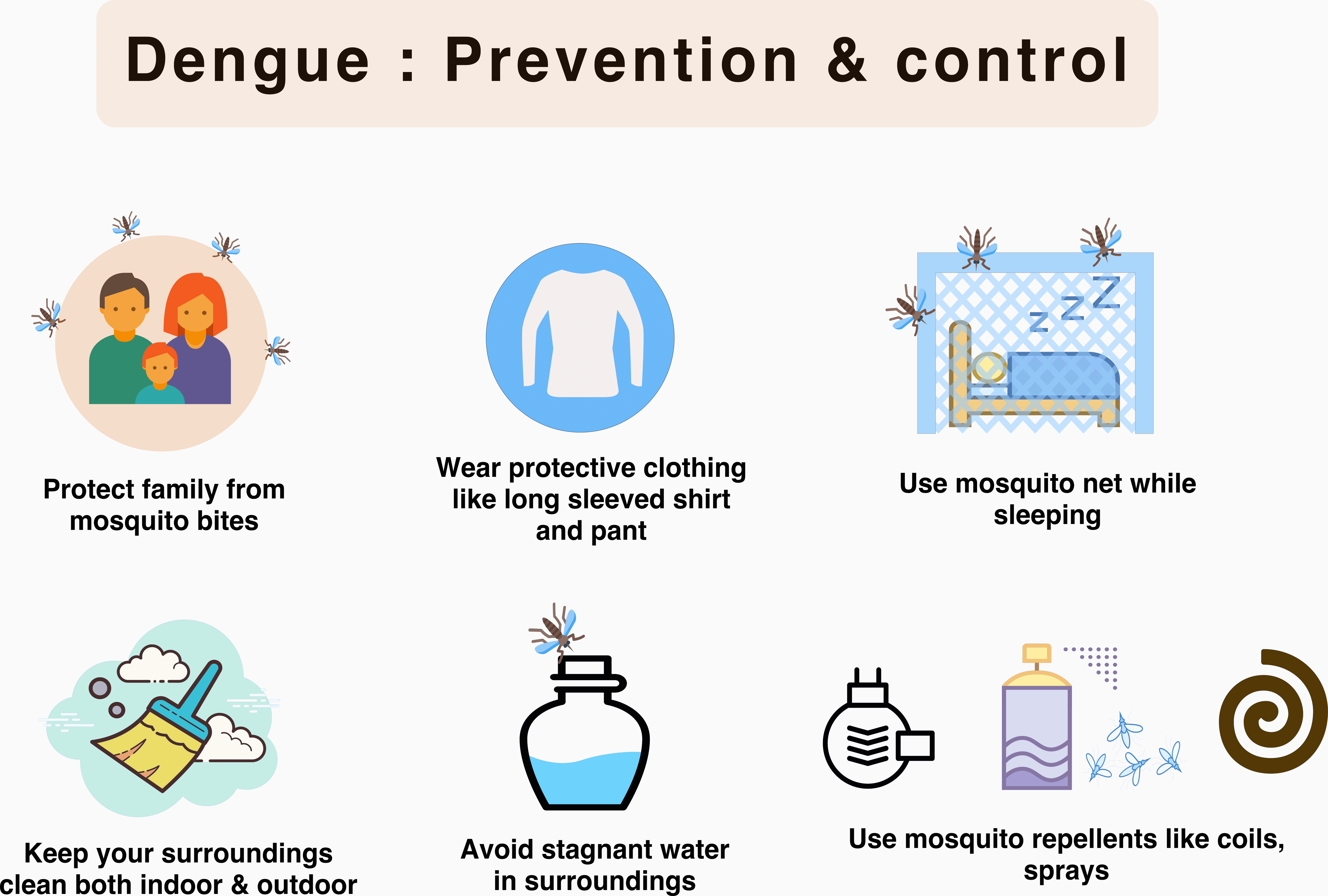
Why do mosquitoes bite more at night?
It varies from species to species. But most of the ones we find the most bothersome are most active between the hours of dawn and dusk. A period of activity known as the crepuscular cycle.
- These are the times of the year when wind speeds are generally low and consistent. Increasing the ability of mosquitoes to locate blood hosts by following scent cues, such as the smell of carbon dioxide exhaled or the smell of lactic acid in sweat. It also comes in handy when they’re in the air. Because they aren’t particularly good flyers, this is the case. And even a light breeze can cause them to lose their bearings, which is dangerous.
- Temperatures at dawn and dusk are more relaxed, which is beneficial for mosquitoes as well. Because they are small and spindly. And because they are ectothermic, they are particularly vulnerable to hot, dry conditions. And can overheat and desiccate when exposed to direct sunlight. As a result, they prefer some form of cover or shade, like needs at dawn and dusk.
- The threat of predators must also be considered. Dawn and dusk are transitional times for birds and bats when birds are going to sleep and bats are waking up and moving out into the open to begin hunting. Being the most active at these times helps them avoid being eaten.
- When compared to infrared light, ultraviolet light (polarized light) is more prevalent at dawn and dusk. And mosquitoes have been observed being attracted to and using UV light to locate moist water sources. Mosquito activity is reduced by infrared light, which is more intense during the daytime.
- Because we are drowsy and our reflexes are impaired during the night. We are less likely to swat mosquitoes immediately after they bite us (before they have completed their meal).
How many eggs does a mosquito lay?
After mating only once, female mosquitoes can lay up to 100 eggs approximately every third night. They lay up to three sets before dying. When those eggs hatch, the entire mosquito life cycle is restarted.
Thus, approximately 300 eggs and no sleepless nights.
Mosquitoes spend the very first eight to ten days of their lives in water
To hatch into wiggler larvae, the eggs must be exposed to water for an extended period of time. Water wigglers eat organic matter that accumulates in stagnant water. It also takes in oxygen from the surrounding environment, as well. They develop into pupae, which are non-feeding and encased in cocoons until they reach adulthood.
A number of days pass before the pupae turn into adult mosquitoes.
Conclusion
Mosquitoes are fascinating creatures, despite their ability to send deadly diseases. The more we learn about them, the better equipped we will fight back against this silent killer.
We hope you enjoyed reading our blog post Facts About Mosquitoes and learned something new! Please comment below with your thoughts or questions to continue to share knowledge about these fantastic creatures.








